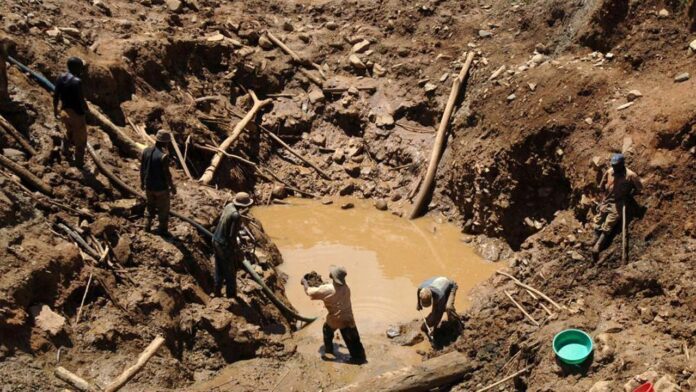In a concerning turn of events, multiple gold mines in northern Niger, under the management of a Chinese company, have been directed to cease operations temporarily. This decision comes after reports emerged of numerous animal deaths linked to the consumption of contaminated wastewater, as confirmed by local authorities speaking to AFP on Sunday.
Residents and herders in the vicinity of the town of Tabelot have attributed the demise of their livestock to the activities of Sahara SARL’s mining operations. They refute the possibility of drought or epidemic outbreaks in the region, emphasizing the stark correlation between the mines’ wastewater and the sudden surge in animal fatalities.\
“Youssaf Houssa, the chief of Tamannit, expressed his dismay, stating, “We counted 24 dead over two days and at the end of April we finally realised that the slaughter was being caused by harmful products in the water the mines were rejecting.”
Almou Akoli, a resident of Fasso, shared the tragic toll on his own livestock, revealing the loss of 16 animals, while others in his community struggled to quantify their losses.
Sahara SARL, a Chinese firm, commenced gold mining operations in January within grazing lands where natural water sources are scarce. However, concerns escalated after police investigators visited the sites last Friday, prompting Niger’s Ministry of Mines to intervene, mandating the closure of at least four mining sites.
Chief Houssa affirmed the halt in operations, stating, “The Chinese have suspended work and we are monitoring our animals.”
According to reports from the local newspaper Air Info, an official assessment corroborated the community’s fears, attributing the “catastrophe” to chemical contaminants leaching from the mines, posing a severe threat to the region’s water table and exacerbating the challenges of animal husbandry in an already hostile environment.
This incident bears resemblance to ongoing environmental concerns raised against other multinational companies operating in Niger. Notably, French company Orano, formerly known as Areva, has faced repeated allegations from NGOs regarding environmental pollution stemming from its uranium extraction activities in northern Niger over the past four decades.



